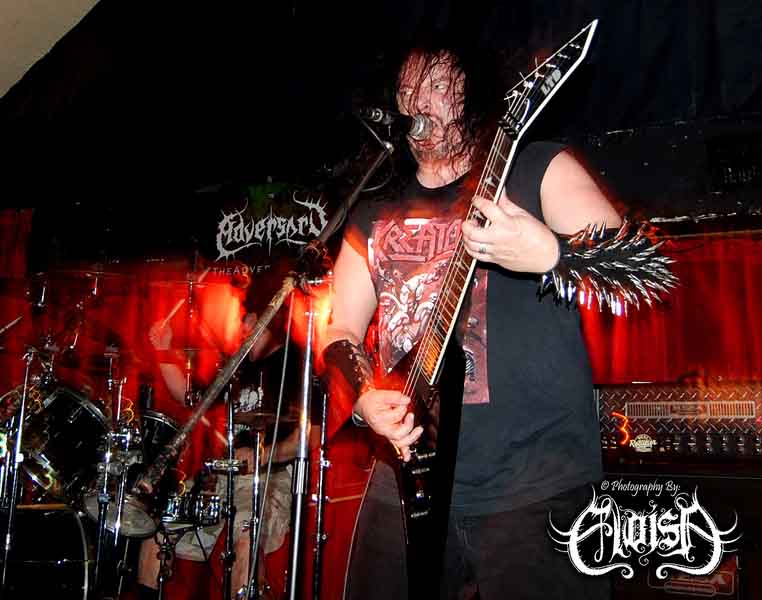 Tom Stevens has been providing technical extreme metal since the 80s. Known as a virtuoso on guitar and owning the distro/label Nokturnel Eclipse, he’s been a supporter of the old school since it began. Though Nokturnel has gone through numerous line-up changes, Stevens has defied odds and kept the flame burning with an indomitable urge to shred.
Tom Stevens has been providing technical extreme metal since the 80s. Known as a virtuoso on guitar and owning the distro/label Nokturnel Eclipse, he’s been a supporter of the old school since it began. Though Nokturnel has gone through numerous line-up changes, Stevens has defied odds and kept the flame burning with an indomitable urge to shred.
Nokturnel is what I would deem “old school technical blackened thrashy death metal” (OSTBTDM).
DeathMetal.org is proud to present an interview with Tom Stevens about his music and businesses.
Howdy Tom. Thank you for your time. What was the mentality that drove you to form Nokturnel? Was there a frustration that you had to unleash? Why did you spell “Nocturnal” as “Nokturnel”?
Nokturnel was not something I really intended to do, my first band Savage Death fell apart and black metal was “out”…. the Satanic thing took a dive and believe it or not it was considered uncool. I had only begun to take Savage Death into what was considered technical metal at the time, and when it fell apart I wanted to take technical to a new level. The drummer of Savage Death was cool with that and he went on to meet Martin O’Connor. By then I was beyond frustrated with generic sounds, so the three of us made Nokturnel as different as we could; we chose to spell it that way because we knew many other bands would appear with the same name.
What are your thoughts on religion? You have previously stated that you believe in aliens. Do you believe that aliens created the human species? How about a mutual collaboration of humans and aliens to further each other? Have you ever seen any UFOs?
Religion is too complicated for things that must be valued with “faith.” It never struck me. The song Force Fed Fear is about the fear knowing you were told there’s a price to pay for not believing in religion. I do believe in Aliens and think they have been part of Earth’s history forever…. I could accept the facts if they were proven; easy for me to have faith in believing in the existence of life other than here on this planet yet I cannot have faith in religion…. I think there will be good and evil Aliens… some will wanna help, some will want us for our worst nightmares… I have no trust in government and think it is a long established fact Aliens have already played their role in where we are now and we were are heading…
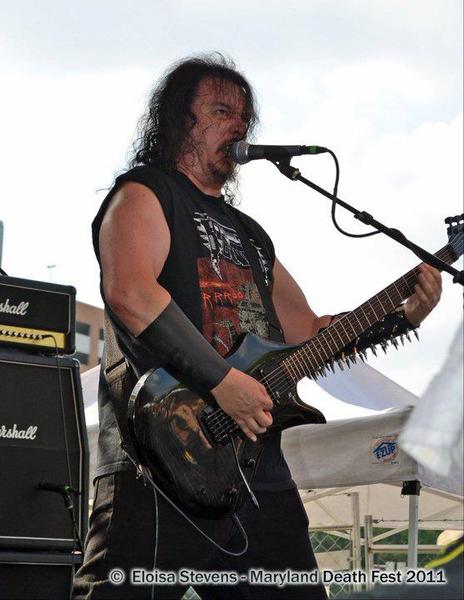 I haven’t heard much on Nokturnel since your last recording ‘Ancestral Calling’. What have you been up to?
I haven’t heard much on Nokturnel since your last recording ‘Ancestral Calling’. What have you been up to?
I managed to get that single recorded right before we played MDF. I had a lot of fan support at the time. It was amazing and heartfelt to be in the position I was in as an independent with no label support and I took it all very seriously. I had a lot of problems I would rather not get into but my stress level was at an all time high. I made changes as best as I could for Nokturnel. It was beyond maddening to be on the verge of taking things ot the next level and not have a stable lineup. I did two more shows which were clusterfucks for me…. the last one killed my drive to be on stage again until I have whoever is playing for me sounding exactly as I intended it to sound. With that mindset I chose to go into the studio alone for the third time to record “Shadows Alive,” I used Kevin Talley this time and it is my favorite Nokturnel song. It was redemption for my self…but unfortunately it did not get half the coverage “Ancestral Calling” received.
I am so fucking fed up with what the younger generation considers metal I feel obligated to carry on…Not enough people have heard any of my music. Many who do pick it apart and have no idea what I am going for. The truth is I have never done the same song twice, and I am working on several new tracks now, far beyond anything I have ever done. I don’t know how I am ever going to complete this project, but I am glad I began a few months ago, I always give it my all but this is going to be the most shocking work of my life… mark my words. It’s 666% Nokturnel!
You’re an avid snake breeder. How profitable is this trade? What are your favorite breeds of snakes? How many do you own right now?
Being a snake breeder is a lot like being a musician. You see bands selling records and touring like crazy and they bitch about being broke as fuck. Snake guys have expensive animals listed for sale on web sites and drive fancy cars and they too swear they are broke. Snakes have been very good to me. I am a hard-ass and price ’em high and tell people my animals are too good for them if they want to haggle. Like any business it has its ups and downs. After 10+ years into the game I have a solid customer base. Some are people you would never think would pay attention to a psycho like me, I take an online bashing once in a while for being that evil metal guy. It is fuckin’ funny!
But snakes are animals that require care. It is low maintenance but I insist on them being in above average condition or they are not for sale. You have to put a lot into to get anything out of it. I think I have about 100 here now. My favorites are Southern Pine Snakes, Bull Snakes and Florida Kingsnakes… that is what I have the most of.
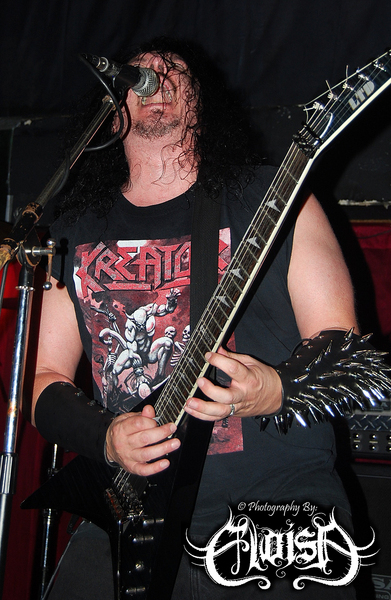 You played with Incantation for a while. What was it like touring with them? Any highlights that you’d like to share?
You played with Incantation for a while. What was it like touring with them? Any highlights that you’d like to share?
It was like most tours bands do where a lot of it is kind of bad but as soon as you get home you cannot wait go back out. Highlight show was in Santiago Chile with Cannibal Corpse and Death… I met many cool people during my time in Incantation but it all soured for me. I did meet my wife because I toured through Texas back then so that is something I do associate with the band as of course a great thing that came of it. Musically I am not meant to play for other people. I should do my own thing. More than one Alpha in a band is bad news… it could have been something, probably should have been but fuck it all…. was not meant to be and I lost interest in that band a long time ago
I’m curious to see which genre you regard Nokturnel as. Is it Technical Metal? Thrash? Death Metal? Black Metal? Or all of the above?
I now prefer to call it death metal but I really do not care anymore. People have been trying to label me since ’85 and they are usually wrong and it is not worth my time to argue. Nothing But the Hatred era material is harder to call death metal especially due to some of the humorous lyrical content but I saw that as a mistake and left that behind. People should realize that the extra track on Fury Unleashed, “A Collision of Dimensions” was a song in between Nothing But Hatred and Fury Unleashed and it showed the direction I was heading…. more death metal. People talk so much shit… too many solos, the vocals should be this way… it is not death or black…. blah blah blah…. I have watched the “scene” turn inside out several times over the years. Very few people have my respect anymore. Therefore… I do not care what anyone calls it if they happen to like it. That is good enough for me,
Nokturnel Eclipse has been supplying metal warriors with leather and spikes for over a decade. How did you come to crafting leather? Have you always been talented in this field?
I was seeing the need for a product and had a business that could easily carry it. My wife had made herself something that we felt we could take more into a typical metal armband. Osmose/Moonfog Black Metal was everywhere and people wanted Spikes. After some trials we introduced a few designs. Nokturnel Eclipse started by selling CDs which was destroyed by the digital shit we have today and now Nokturnel Eclipse focuses on Spiked Leather and Leather Masks.
Working with leather for yourself is one thing. Being able to sell it to customer after customer and build a reputation is another. We are now well known worldwide and have taken the whole process of creating what we offer farther than we ever thought. Years of experience make a big difference but making every single order perfect for every customer means a lot of hard work on our behalf. We are extremely busy which is great but it is delaying other new items we hope to add to Nokturnel Eclipse soon. We started in 1999 but things really took off for us in the past few years.
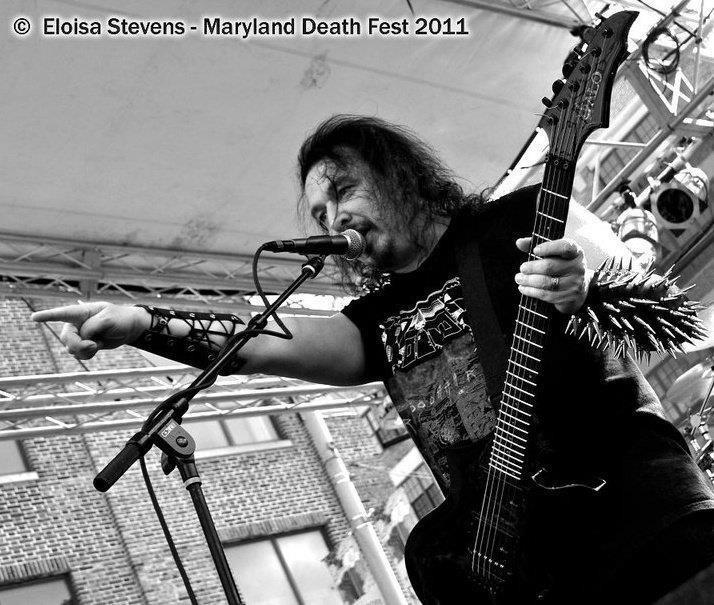 Please detail your contributions to Ripping Corpse. Are you still friends with Erik Rutan?
Please detail your contributions to Ripping Corpse. Are you still friends with Erik Rutan?
I became friends those guys early on in the Nokturnel demo days. We all got a long really well and were great friends, When they had shows booked out of state they did not want to miss and needed a bass player I was the go to guy. They knew I was capable of learning all their songs in a short period of time and I did just that including unrecorded new songs. They also stayed at my house during the recording of Dreaming With the Dead, I was there from the first note to final mix. I got to sing on all the backing vocals on the record and one other small part for half a second in “Glorious Depravity.”
I am friends with Rutan and consider all of them friends but it is Shaune Kelley I keep in touch with, I am a fan of almost any band any of my friends are in, of course that includes Hate Eternal but Shaune IS Ripping Corpse. The list of people I know in established bands is ridiculous. I do not speak to anyone on the phone often and do not go out of my way to keep up with any of them any more than any random person on the internet. I consider tons of people friends and we are happy to get together when they come through my area but I am a busy person and prefer the company of my family. My closest friends in bands get the invite to stay with us…. Rutan and Kelley would make that list.
You and King Fowley appear to be the best of pals. How many times have Nokturnel and Deceased played shows together? How long has your friendship been? There must be some crazy stories with you two in the early days of extreme metal.
Yes, we are. We agree on many things more so than disagree and know us older underground guys are a dying breed. I have known him and a lot of people since 1990 or earlier. Nokturnel and Deceased did quite a few shows together in the early 90s and I went to many shows down south where they were from on my own just to hang out. King and I are a lot alike but we are not by any means carbon copies of each other.
He is a unique personality and I would like to think people see me that way as well… One time I was with Deceased in Maryland we all piled into one hotel room. Long after everyone passed out I woke up to what I thought was a fucking gunshot. When I jumped out of my skin only one other person in the room woke up… I think it was King.. I looked through the curtain and saw some guy hauling ass through the parking lot, it was freezing during winter at the time. It turned out that some guy had bought a can of soda from a machine and smashed it through the window of the room next door. He was freezing out there and just had a freakout.
There’s some good babble [on this topic] in the book Glorious Times…One time in Cleveland we both played a show called Splatterfest. King misunderstood me and during their set invited the entire show to MY hotel. When I said see you there with everybody I meant Deceased… not half of Cleveland…. no fun telling carloads of people to go away that night, good times
You originally lived in New Jersey and relocated to Texas. I have noticed in previous statements that you have a disdain for your prior homeland. Why do you prefer Texas so much? Is it because Texas has the ability to secede if the US keeps twirling into nonsense?
Some people would consider leaving the area they grew up in a nightmare, for others it is a nightmare to stay. I much prefer the people of the South, not meaning metalheads…. they are the same no matter where you go, but people in general are easier to live with. NJ is a place I look back at knowing life for me got a whole lot better when I left. Some people refuse to leave and look for something better in life. I am not one of them. I moved to Florida around the time I joined Incantation which was no fun with the extra travel but even that was a massive upgrade for me.
Texas is fucking awesome. Great people, open minded and tolerant. Great weather, amazing food. When I met my wife she was living in Austin and it was a no-brainer for me to come to Texas instead of us staying in Florida. This is where we both want to stay. After living here and seeing almost everywhere you can think of…. I cannot see myself living anywhere else.
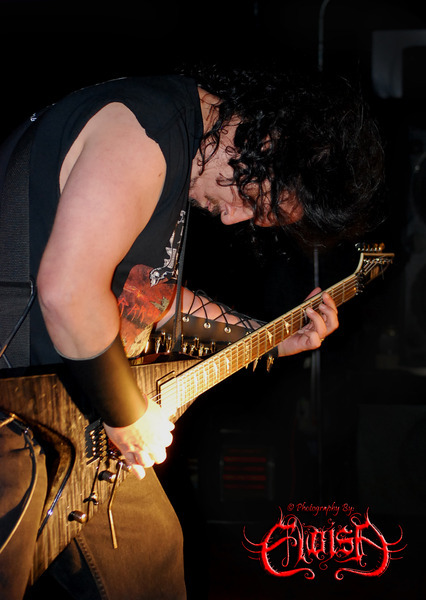 How long have you played guitar? You’re quite an amazing musician. What type of equipment, guitars, strings, etc do you use? What type of equipment would you recommend to new guitarists that are just starting out?
How long have you played guitar? You’re quite an amazing musician. What type of equipment, guitars, strings, etc do you use? What type of equipment would you recommend to new guitarists that are just starting out?
I began about 1980. I had experience playing piano when I was very young, which I blew off… I used to read complex sheet music and all this crap. I do not remember ANY of it. Matter of fact I only know the names of two guitar strings and one scale. All of my guitar [playing] is natural.
I took some basic lessons and was taught a few basic things before I was told I did not need any lessons and not to return. My teacher showed me “I Don’t Know” by Ozzy in the most retarded way imaginable. I showed him the right way; he was not mad. He made sure I knew how to tune the guitar and said I pick way too hard but I would be a great player some day… I was furious as I wanted to learn how to play lead. I figured it all out on my own. To these schooled modern shredders, they seem to pick me apart and explain everything I do in terms that mean nothing to me. “you don’t come all the way around on a this and don’t finish a that before you go into a….”…. I am thinking if I did that…. I would sound like you, and Nokturnel fans do NOT want that… so take your shred knowledge and tell someone who is easily impressed.
I am happy where I am in my own realm of demonic possession and appreciate others way more than they appreciate me. No sleep lost there. I am most known for using the Washburn EC29, but I currently play a Halo Inverted and having a Kahler Pro Series tremolo is mandatory. I only have one other V and am in the market for a new one now. I would appreciate it if you would link the Tremolo Torture video I did for Kahler. I talk a lot about why I need a Kahler tremolo.
I am a gain maniac. Crank a dual rectifier with active pickups and add more distortion and gain and noise and you are ready to create some noise, I think the two things a new player needs to help them gain confidence is proper reverb and a little delay effect. Best advice I can give anyone who wants to learn how to play… begin with Iron Maiden Piece of Mind, learn the riffs, learn the solos… you are now metal
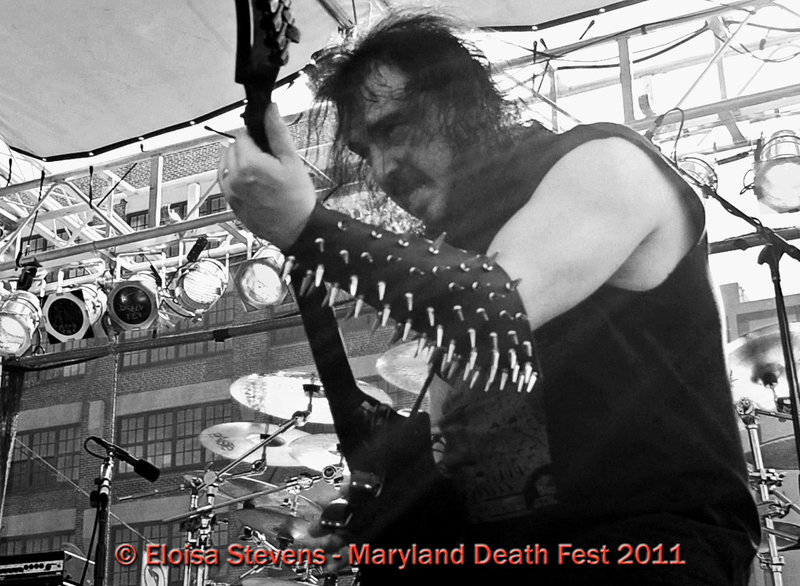 How well was the single “Ancestral Calling” received? What inspired you to write it? The riffs don’t seem to differentiate much, but the technical ability is amazing. How did you approach this song? What was your mindset? How will Nokturnel top this song in the future?
How well was the single “Ancestral Calling” received? What inspired you to write it? The riffs don’t seem to differentiate much, but the technical ability is amazing. How did you approach this song? What was your mindset? How will Nokturnel top this song in the future?
Overwhelmed with it really. It was incredible for me. I set out to do something I had not done in 20 years. A song based off only a few simple parts like Savage Death did in the 80s. I also wanted a song where the vocals and storyline dominate and that it did, Playing that song at Maryland Death Fest was the greatest moment for me in all of Nokturnel history. Seeing the crowd respond and even sing the words with me was just unbelievable. I was worried I kept it too simple, had feared Nokturnel fans would just not be into it. I was wrong, they fuckin’ flipped over it and I gained a ton of new fans. I feel I did top it.
The followup was “Shadows Alive” which is completely different. It is also based on real life paranormal experiences I was cautious about sharing with anyone. It is a very personal song for me and also much more furious than “Ancestral Calling.” Finding myself standing alone again after the last show I played and passing on other opportunities I chose to turn my back on everything and go back into the studio.
That song for me is a personal triumph. Not content with the few offers I got to play in 2013 and all the hassle to get the line up going I am now doing the same thing. Back in the studio alone, writing. “Shadows Alive” surpassed “Ancestral Calling.’ The new stuff I am working on now is way beyond that material, and believe me when I say I love all my music. This is why there are only so many Nokturnel songs as opposed to 10+ CDs worth. I am striving to make the best music…. not the most.. Every song counts.
Thank you for your time. If you have anything else that you’d like our readers to know, please share.
I think you did a great job with these questions. I managed to keep it short for a change, Thanks for that! I do intend to play shows again but I have a lot going on and much more work to do on new material. This band means more to me than anyone could understand, I have a lot more to offer and will fight to the death to make it happen.
Feel free to check out Tom’s businesses and music:
6 CommentsTags: Nokturnel
 In the mainstream press, black metal has a reputation for being solely misanthropic, heavily distorted anthems of aggression and despair that are defined by their primitive minimalism.
In the mainstream press, black metal has a reputation for being solely misanthropic, heavily distorted anthems of aggression and despair that are defined by their primitive minimalism. 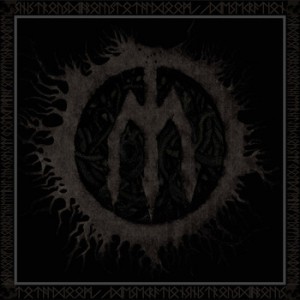 Sinistrous Diabolous creates funeral doom metal from the fragments of death metal. It uses the rapid strumming of slow chording that made Incantation so thunderous, merged with the abrupt tempo changes of Autopsy, and the mixed sounds and dynamic variation of Winter.
Sinistrous Diabolous creates funeral doom metal from the fragments of death metal. It uses the rapid strumming of slow chording that made Incantation so thunderous, merged with the abrupt tempo changes of Autopsy, and the mixed sounds and dynamic variation of Winter.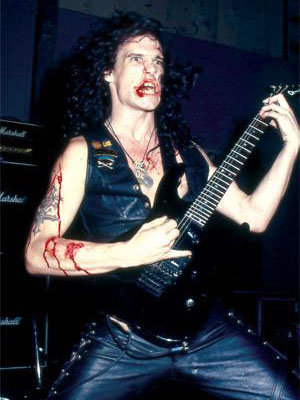 According to UPI, the police in Manchester, UK have decided to
According to UPI, the police in Manchester, UK have decided to 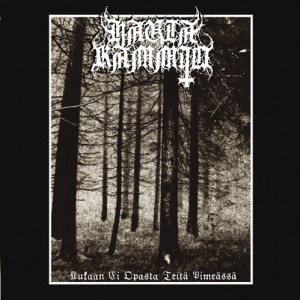 During the early days of black metal, it was acknowledged that punk had been a major musical influence on the genre. In particular,
During the early days of black metal, it was acknowledged that punk had been a major musical influence on the genre. In particular, 
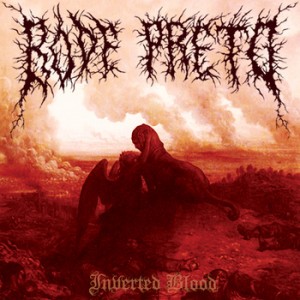 It’s not often that a new band appears that warrants much attention from these old, somewhat jaded eyes. Indeed, there are still good releases that pop up from newer bands — even releases that are good enough in my opinion to support by buying them. In today’s age of over-saturation it’s really difficult to wade through the muck in an effort to find that diamond, if one even had the luxury of time to want to.
It’s not often that a new band appears that warrants much attention from these old, somewhat jaded eyes. Indeed, there are still good releases that pop up from newer bands — even releases that are good enough in my opinion to support by buying them. In today’s age of over-saturation it’s really difficult to wade through the muck in an effort to find that diamond, if one even had the luxury of time to want to.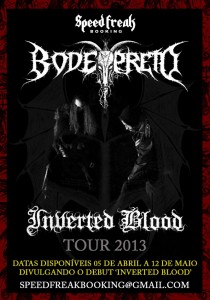
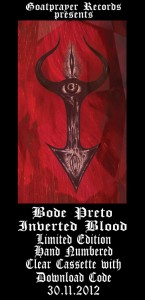 Listen to this release and think about how Adelson was originally approached as a session drummer…Having listened to the skeletal ideas, Adelson was apt to project his unique mind’s eye to the arrangements and ultimately became that new member. A quest to create led him to travel thousands of kilometers from home to spend a week with Josh — revealing a level of conviction to which I don’t think Josh was initially expecting. Josh found his “minute man” in Adelson and the resulting nine-track album is worthy of support by every extreme music fan if you’re worth your salt (or brimstone or whatever).
Listen to this release and think about how Adelson was originally approached as a session drummer…Having listened to the skeletal ideas, Adelson was apt to project his unique mind’s eye to the arrangements and ultimately became that new member. A quest to create led him to travel thousands of kilometers from home to spend a week with Josh — revealing a level of conviction to which I don’t think Josh was initially expecting. Josh found his “minute man” in Adelson and the resulting nine-track album is worthy of support by every extreme music fan if you’re worth your salt (or brimstone or whatever).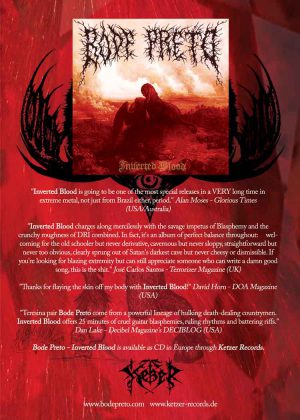

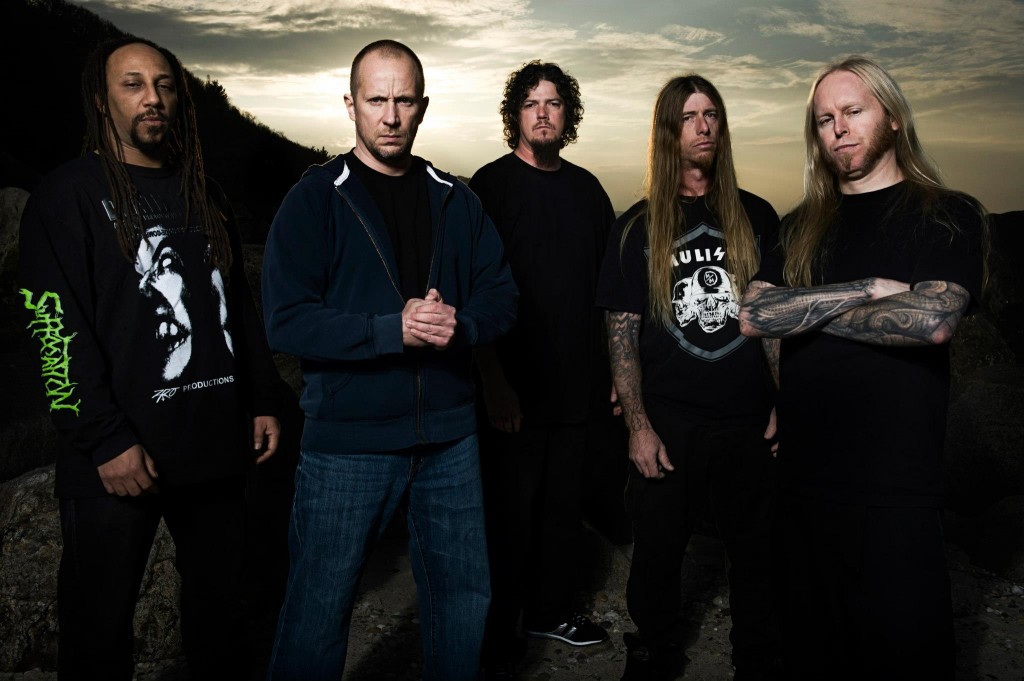
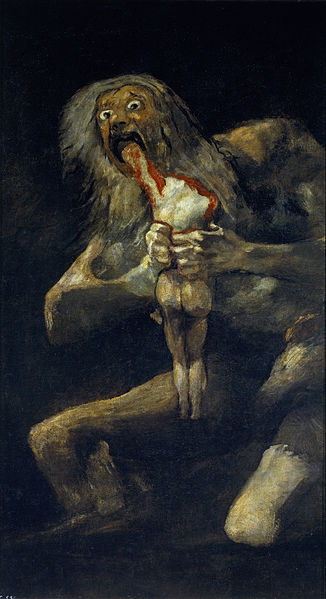

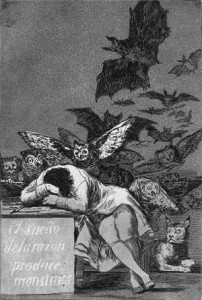

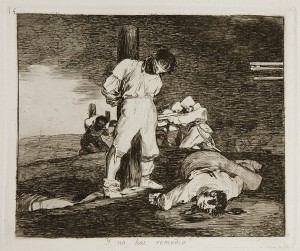

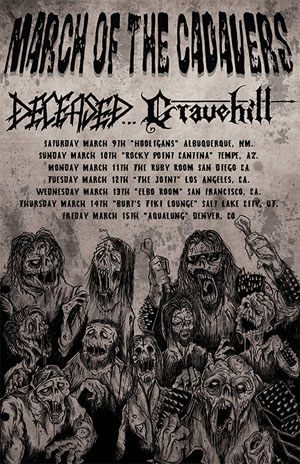 Death metal early adopters
Death metal early adopters 
